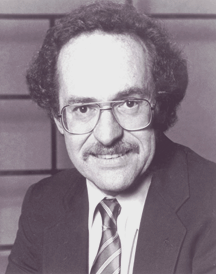Guilt Tripping
Legal superstar Alan Dershowitz wants to send 'Primal Fear' up the river
By David Templeton
'I GO TO A LOT of law movies," admits Professor Alan Dershowitz, speaking from his office at Harvard School of Law in Boston. "I persuaded my wife to see this one [Primal Fear] because Richard Gere is such a good actor, and it sounded like an interesting movie." Pause. "But I thought it was one of the worst scripts about law that I have ever seen. It's an insult to the intelligence of the viewer."
Apparently, Dershowitz did not care for the film.
"I hated it," he confesses.
Dershowitz is a renowned and controversial defense attorney whose clients have included Claus Von Bulow, Patricia Hearst, Mike Tyson, Jim Bakker, Michael Milken, Leona Helmsley and, most recently, O.J. Simpson. A born teacher, he is fiercely devoted to the education of the public in matters of law, a passion he has parlayed into several best-selling books (Chutzpah, Advocate's Devil, Reversal of Fortune, and others), along with an unusually humane syndicated radio show (Dershowitz!, 4pm Sunday on KGO-AM).
In Reasonable Doubts, his probing new book about the O.J. case, Dershowitz calmly examines the cultural circumstances that led to the jury's vote for acquittal and the public's response to that verdict. In spite of its author's reported knack for grandstanding, Doubts proves to be the least self-serving of the myriad of O.J. books released. It also proves to be a passionate illumination of the facts of the legal process.
It's no surprise then that a film like Primal Fear would raise Dershowitz's professorial hackles. The story of an arrogant lawyer (Richard Gere) who gleefully defends a sweet young man (Edward Norton) accused of hacking up a priest, the film is as full of holes as the unfortunate victim. For instance, after entering a plea of innocent, the attorney discovers ... um ... an added dimension to his client's personality, but having already entered a plea, the lawyer cannot legally change it to insanity, we are told, and must resort to rather desperate measures to win the case.
When I mention that point, the inability of a defendant to change pleas mid-trial, Dershowitz seems stunned by the question.
"You can't change your plea to insanity? That's insane!" he laughs. "Of course you can change your plea to insanity if new information develops that you did not have available to you previously. It would be a fundamental denial of due process not to permit you to change your plea."
Still, audiences are sitting there with their popcorn, swallowing that particular judicial falsehood--and dozens of others--as if it were all butter flavoring. I bring up a few more points.
Can a judge swill bourbon at the bench while court is in session?
"Of course not!" hechuckles.
Could a lawyer whisper threats and prompts to his client mid-testimony? Would a judge dictate to the lawyers how their cases will be handled?
"No! No! No! Nothing about this movie made sense," Dershowitz laments, "not legally, medically or cinemagraphically."
What about the concept of a cynical, unethical lawyer?
"Well, of course," he laughs, "there are lawyers like that, but this guy wasn't one of them. He turned out to have a conscience. I'd love to see a good movie about a cynical lawyer. A lawyer who is cynical to the very end! This could have been that movie. At the very end, they could have revealed that the lawyer had helped the client use the multiple personality ruse to win the case. He would have walked away victorious. Talk about a twist!"
Dershowitz muses a moment.
"You know what shocked my wife about this movie?" he finally asks. "She said to me, 'How could this movie have been released after the Simpson case?' Her point being that, after the Simpson case, your legal audience is going to be a lot more sophisticated. Right? And they're not going to fall for this crap."
"Right," I say. "Isn't it ironic that viewers experienced the very real- life Simpson trial as if it were some unusual TV entertainment, without learning very much from it, yet they will go to see splashy entertainments like Primal Fear, and will undoubtedly think they've learned something about law."
"If so," Dershowitz replies, "they are learning bad law. And they're learning bad psychology. Most of all, they're learning bad filmmaking. The way it was made reflects such a lack of legal sophistication.
"You'd think, after so many people had seen the slickness of the work that goes on in a courtroom, that they'd know better. I'd have to conclude, tragically, that the Simpson case was an educational failure. We failed. And," Dershowitz adds, "I think this movie just compounds the failure."
This page was designed and created by the Boulevards team.

Law Review: Alan Dershowitz shoots holes in the flawed legal logic and dumbed-down filmmaking of "Primal Fear."
Metro Santa Cruz writer David Templeton takes interesting people to see interesting movies in an ongoing quest for the ultimate post-film conversation. This week, he calls up celebrated law professor Alan Dershowitz to discuss the lawyer-bashing courtroom thriller Primal Fear, now playing at the Del Mar. Warning: If you have not seen the film, and intend to, read no further! Secrets are about to be revealed. --Editor
From the May 2-8, 1996 issue of Metro Santa Cruz
Copyright © 1996 Metro Publishing and Virtual Valley, Inc.
